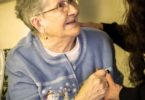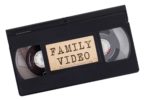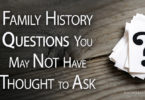One of the most interesting things you will come across while doing genealogy research is an oral history. Oral histories are the spoken recollections of people about their lives, families, and times in which they lived. There is nothing quite like listening to someone talk about their life from their own, personal perspective. You do not get that in genealogy very often. Usually, you are looking at impersonal records and second or even third-hand accounts. To get information, as they say, “straight from the horse’s mouth,” is invaluable, and akin to genealogical gold.
Oral histories have been taken from people for centuries, either for family history research projects or for government history projects. There was a huge effort by the US federal government during the Great Depression of the 1930s, for example, that took oral histories from elderly African-Americans who had been born into slavery before it was abolished after the Civil War. These histories were recorded on audio tape, and provide fascinating and historically valuable first-hand accounts of slavery in the United States from people who actually lived it, in their own words and own unique ways of speaking.
Oral histories may be recordings only, they may be written down by someone who is interviewing the person giving the oral history, or they might be recorded with written transcripts to accompany them. You might find them in local libraries, county, state, and national libraries, at university libraries, at local and state historical societies and archives, with genealogical societies, online, and within individual families. Not every oral history is published. Some families take oral histories of their older relatives, and then hand those down within the family. Ask around the older members of your own family to find out if any oral histories exist in your family that you can listen to or read. You might be surprised at what you discover exists in your own family’s treasure trove of heirlooms and mementos.
You will find personal details not available anywhere else in oral histories. You will get an individual person’s unique perspective on their lives and on the history of the times in which they lived. You will get stories about their own older relatives who you might only know as names on a page or on a family tree. You may learn the names of ancestors you didn’t know existed at all. These things allow you to learn about ancestors you never met, and to virtually “meet” them as real, fully fleshed-out people, not just names, dates, and faded photos. You will also learn a lot of wonderful new things about the life and times of your older ancestor who gave the history, as well as things about that ancestor themselves. They will become real to you if you never met them, or a more well-rounded person than the one you currently know.
Oral histories are genealogical treasure. Seek them out and learn from them. You will love them.
If you don’t have any oral histories in your family, and have checked the libraries where your ancestors lived, as well as the National Archives in Washington, D.C. (you never know when an ancestor might be part of a national oral history project, or a local oral history project that became cataloged at the National Archives), you can always create your own. It makes a wonderful gift to hand down to subsequent generations, and to give to current generations who may not know much about the family history or the older relatives in the family. Your older relative will probably love the opportunity to tell their life story and answer your questions about the past and ancestors you never knew.
In fact, it is a terrific idea to get oral histories from as many of your older relatives as are willing to talk to you. These older relatives are living historical treasures, and it is so important to get their stories while they are still here on this planet. Look at this as your opportunity to record their lives as they lived them, from their perspective, while they are still here, as no one else can give you those stories from that unique, personal perspective. Get the stories before they are lost. Do it now. You will be so glad that you did one day, and the future generations of your family will also be grateful for your work. You are creating a family legacy, and an invaluable historical treasure that could very well end up in a museum or an archives one day. Your older relatives’ stories will stand an excellent chance of being preserved for posterity forever. This is a sacred calling. You should think of it that way. Not many people take the time to do it, and it’s so important.
When you get an older relative to agree to do an oral history, take some time to consider what questions you want to ask them. Put some careful consideration into this, as you want to be sure to get the answers to anything you may be curious about, or think is important for the family tree or for future generations to know. Make a list of questions before the interview. You will want to ask them questions about their childhoods (including what life was like then, what their family makeup was like, what their parents, grandparents, siblings, and other relatives were like, what local, national, and world events affected them and how, and what they thought about their childhood overall, especially as compared to the childhoods kids experience today). Be sure to get information about their teen years, their school experiences, what the town was like when they were young. Ask about how they met their spouse (if they got married), what dating or courting was like for them, the way they knew they wanted to marry their spouse, what their wedding was like, what the early years of their marriage was like, things like that. Move on through their young adulthood, first jobs, first children, careers, life as a housewife if that’s what they did, expectations of society, and gradually bring your questions up to the present day. Ask them about their hopes for the future, not only for themselves, but for future generations of the family. Ask them to give future generations a message of something they believe it is important for them to know. Record all of this on some recording device, then transcribe it on your computer later. Save it, then print it out or email it to whoever you like.




